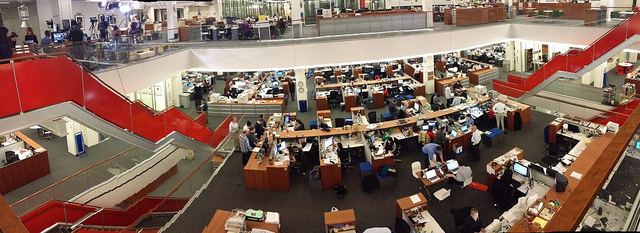
Website:
Professor Robert G Picard is a specialist on media economics and government media policies. He was formerly based in the Media Management and Transformation Center at Jönköping International Business School in Sweden where he was Director of the Center and Hamrin Professor of Media Economics.
He is the author and editor of 28 books, and has been editor of the Journal of Media Business Studies and the Journal of Media Economics.
Robert is the Reuters Institute North American Representative and directs projects across the main RISJ research areas examining changes in the business of journalism, the practice of journalism and journalism and accountability.
-
October 28, 2016 •
Ethics and Quality, Latest stories, Media and Politics •
by Robert G. Picard
There are critical vulnerabilities in contemporary journalism practice that allow populist parties and their supporters to actively manipulate the press and subvert democratic processes. Journalists need to be aware and respond to these....
Read article
-
April 26, 2016 •
Media and Politics, Newsroom Management •
by Robert G. Picard
The risks taken by journalists attempting to report dangerous conflicts are clear. Yet, despite evidence that journalists are increasingly being targeted by kidnappers, many are still unprepared for the threat. Reporters and news...
Read article
-
August 5, 2015 •
Research, Short stories •
by Robert G. Picard
News coverage of the Euro Crisis across Europe has tended to portray European institutions as important, but ineffectual, in dealing with the crisis and to take national rather than a European approach to the issues, according to a study...
Read article
-
June 16, 2015 •
Digital News, Short stories •
by Robert G. Picard
Smartphones and tablets are increasing consumption of news on digital platforms and more customers are accessing digital news throughout the day, according to the 2015 Digital News Report from the Reuters Institute, University of Oxford,...
Read article
-
May 7, 2015 •
Recent, Research •
by Robert G. Picard
Journalists believe journalism will be a harder job with less institutional support in the future, according to a survey conducted by the Reuters Institute for the Study of Journalism and the Society of Professional Journalists. The...
Read article
-
June 2, 2014 •
Digital News •
by Robert G. Picard
The increasing consumption of news on digital platforms is forcing news organizations to rethink their news production cycles and staffing patterns. Most journalists, like other employees, prefer a normal pattern of life—going to work in...
Read article














































